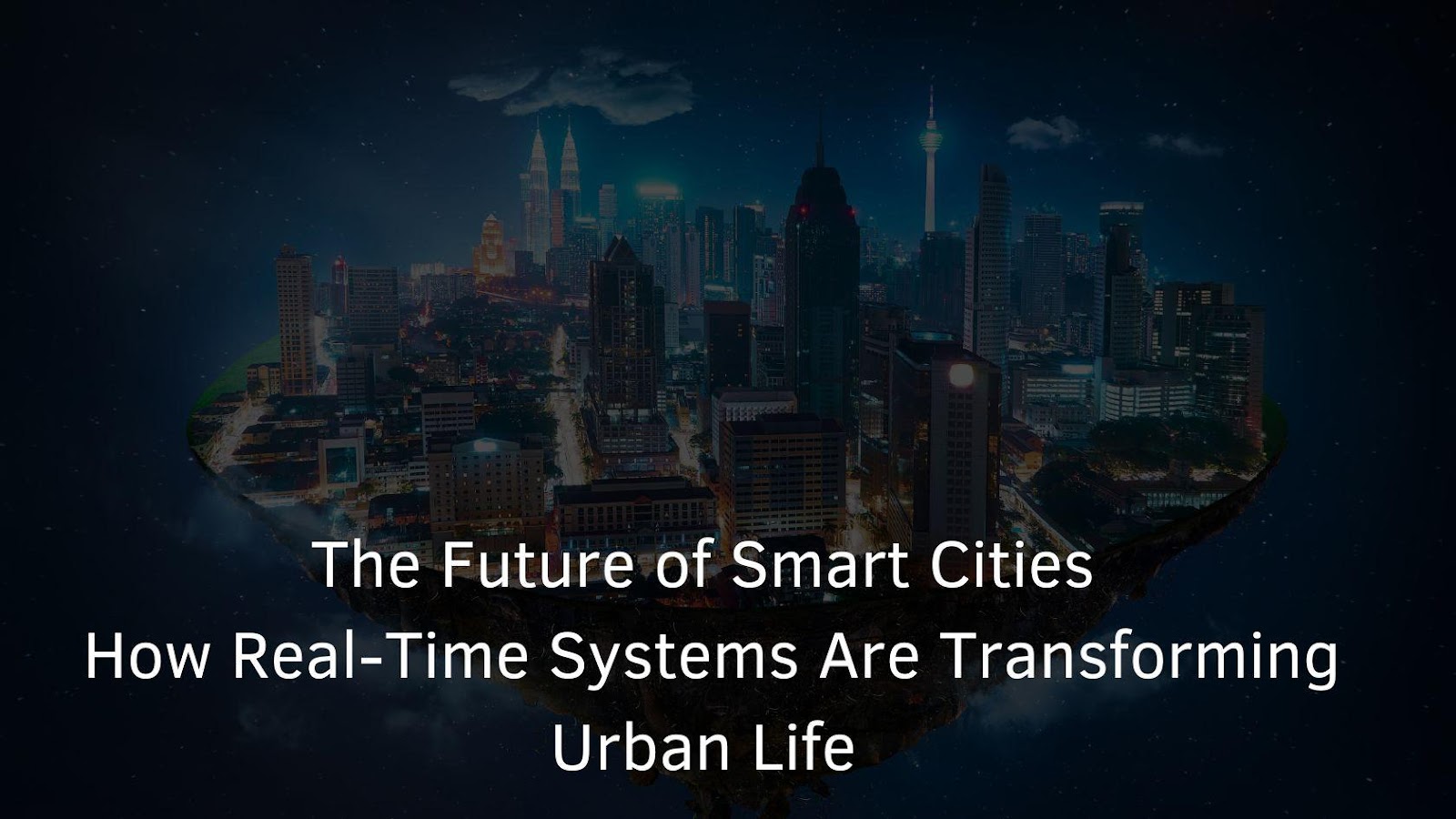Share Share Share Share Email In today’s digital transformation era, technological advancements redefine how cities operate and serve residents. Among the most impactful innovations are distributed real-time systems, which have revolutionized urban infrastructure, making cities more efficient, sustainable, and responsive to societal needs. This article explores key advancements in smart city technology , highlighting how real-time systems enhance public infrastructure, mobility, emergency response, and digital governance.
Written by Mayur Bhandari , a technology researcher and expert, this article sheds light on the ongoing evolution of urban ecosystems driven by intelligent automation and data-driven decision-making. The Power of Distributed Real-Time Systems The adoption of distributed real-time systems has significantly enhanced urban management by enabling seamless communication between interconnected devices and sensors. These systems rapidly process vast amounts of data, leading to better transportation, energy distribution, and emergency response decision-making.

Studies have shown that implementing these systems has improved urban operational efficiency by nearly 68% while reducing costs by 34%. Intelligent Transportation Networks Modern cities are transforming through Intelligent Transport Systems (ITS), using AI and real-time data to optimize traffic and enhance safety. With 91% accuracy in congestion predictions, delays have dropped significantly.
Predictive analytics improved public transport schedule adherence by 43%, making urban transit more efficient, reliable, and accessible. Enhancing Public Safety and Emergency Response Integrating real-time systems in emergency response frameworks has redefined crisis management in cities. AI-powered monitoring and IoT-based emergency networks have enabled a 78% increase in incident detection accuracy, allowing first responders to act swiftly.
Emergency response times in urban centers have improved by over 42%, thanks to implementing interconnected command centers that streamline agency communication. Additionally, predictive analytics tools have reached an 89% accuracy rate in risk assessment, facilitating proactive intervention during critical events. The Digital Transformation of Education and Creativity Real-time systems have also made significant educational strides, revolutionizing learning environments.
E-learning platforms now integrate AI-driven assessment tools, which have improved student engagement tracking accuracy by 92%. Real-time analytics provide educators with immediate feedback on learning outcomes, enabling personalized instruction tailored to individual student needs. Computational learning environments utilizing AI-powered simulations have also demonstrated an 88% satisfaction rate among learners, fostering an interactive and immersive educational experience.
Ethical Considerations in Smart City Implementation As smart cities become increasingly dependent on real-time data, ethical considerations surrounding privacy, security, and digital equity have emerged. Reports suggest that approximately 82% of urban residents’ personal data is processed through innovative city systems, raising concerns about data protection and surveillance. Despite efforts to maintain compliance, only 76% of innovative city initiatives fully meet established data protection standards.
To address these concerns, transparency measures and algorithmic accountability frameworks are implemented to improve public trust and ensure responsible technology governance. The Role of Sustainable Urban Development Sustainability remains a key pillar in the development of future cities. Studies indicate that smart city frameworks emphasizing sustainability have reduced urban carbon emissions by 29% and improved resource utilization by 36%.
Real-time energy management systems have also contributed to a 41% increase in overall efficiency. Strategic planning in smart city implementation ensures that technological advancements align with environmental goals, fostering long-term urban resilience. Future Prospects and Policy Recommendations Effective policy frameworks must be in place to maximize the benefits of innovative city technologies.
Research shows that cities implementing structured governance models experience a 43% higher rate of public engagement and a 38% improvement in service delivery. Integrating ethical guidelines and public feedback mechanisms can also significantly enhance citizen satisfaction and trust in automated decision-making systems. Looking ahead, interdisciplinary collaboration between technologists, policymakers, and urban planners will ensure the seamless and ethical integration of real-time systems.
In conclusion, Mayur Bhandari ’s insights into distributed real-time systems underscore their transformative impact on urban infrastructure. From intelligent transportation networks and emergency response optimization to ethical governance and sustainability, these advancements are shaping the future of urban living. However, as cities become increasingly interconnected, a balanced approach must be maintained to address privacy concerns and ensure inclusive technological adoption.
By prioritizing ethical governance and strategic planning, smart cities can harness the full potential of real-time innovations to create a more efficient, secure, and sustainable urban landscape. Related Items: Mayur Bhandari’ , Real-Time Systems , smart city technology Share Share Share Share Email Recommended for you Transforming Recommendations: Innovative Strategies in Real-Time Systems Comments.
Technology

The Future of Smart Cities: How Real-Time Systems Are Transforming Urban Life

In today’s digital transformation era, technological advancements redefine how cities operate and serve residents. Among the most impactful innovations are distributed real-time systems, which have revolutionized urban infrastructure, making cities more efficient, sustainable, and responsive to societal needs. This article explores key advancements in smart city technology, highlighting how real-time systems enhance public infrastructure, mobility, [...]The post The Future of Smart Cities: How Real-Time Systems Are Transforming Urban Life appeared first on TechBullion.















